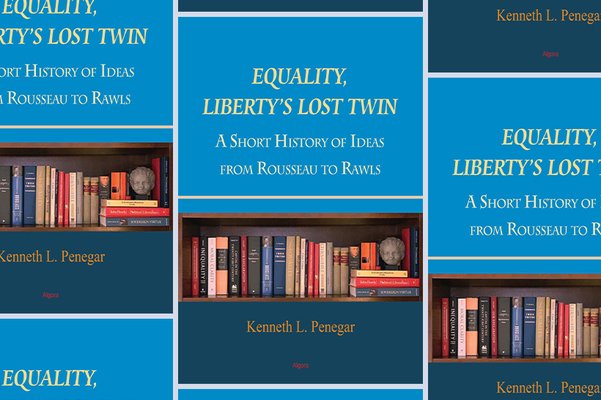“Equality, Liberty’s Lost Twin” by Kenneth Penegar

Kenneth L. Penegar has written Equality, Liberty’s Lost Twin: A Short History of Ideas from Rousseau to Rawls.
In this new work, Penegar “presents a composite picture of both historic and contemporary understandings of the ideal of equality and of the policy initiatives undertaken to advance the ideal over the same expanse of time.”
What do we mean by equality, in America, and how are we doing? This book outlines both historic and contemporary understandings of the ideal of equality, and it presents the major policy initiatives undertaken to advance the ideal over the same expanse of time.
So much has been published in recent decades about inequality -- principally in economic terms -- that it seems timely to examine what it is that moves us to be concerned.
From Rousseau to Martin Luther King Jr., significant individuals who authored the ideas, crucially supported them, or carried them into public policy are identified in the context of the eras in which they were active.
The claim that we collectively care more about liberty than we do equality is implicit in the title of this book. Consider first that the Declaration of Independence claims that ‘life, liberty and the pursuit of happiness’ are inalienable rights that stem from the endowment of reason. No mention of equality there, although a preceding phrase in the same paragraph does famously declare that we are ‘created equal.’
Consider, secondly, that one (if not the very first) negative response in contemporary American political debate to a proposed extension of public assistance or raising the minimum wage is the argument that it will reduce liberty. The suggestion is direct: extending the one will reduce the other. They are competitors. That’s the claim.
Prof. Penegar leads an insightful discussion of such commonly-held thoughts and investigates how accurate they are.
Over the course of his distinguished career, Penegar’s principal areas of teaching and scholarship have included professional ethics, criminal law and jurisprudence. He has published major length articles in a variety of law reviews and journals; some of these have been reprinted as chapters of books on criminal law and ethics.
